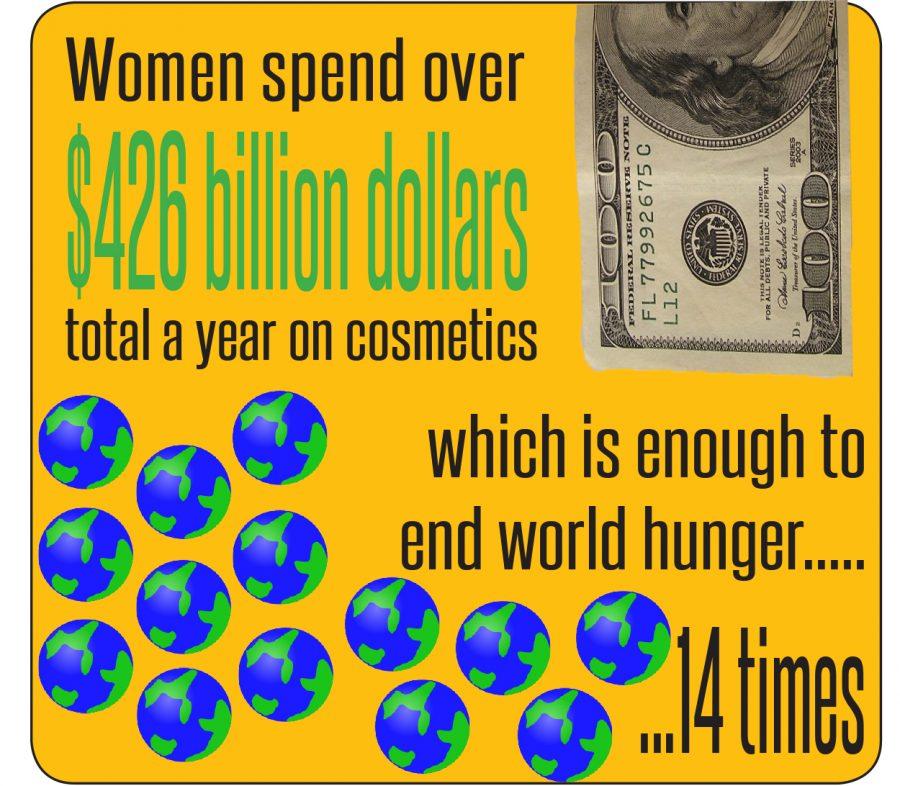Marketers target based on perceptions of self-image
February 6, 2014
Women love fields of delicate pastel flowers, rainbows and unicorns while men can only be bothered with chopping wood, constructing large buildings, and chasing after pretty girls, according to advertisers. They would have a person believe women should only smell sweet and feminine and men should smell like musk that can only naturally be found on the hardest working of men.
“When we talk about marketing soaps or cleaning products or cosmetic products to different people we need to think a little bit about people’s perceptions of why they’re buying the product,” said Robert Armstrong, professor of marketing.
Market targeting is the act of determining which products best meets the needs and wants of the target markets, Armstrong said.
“Usually a woman buying cosmetics typically will buy cosmetics to become more attractive,” Armstrong said. “They see it as changing their self-image, that’s very psychological. So when you market the differences in the psychology of human beings you use different psychological cues to do that.”
If one specific gender desires to become more attractive and the other gender is more inclined to being clean or smelling good they will generate a different marketing message, Armstrong said.
“Marketers are going to go after where they can make the most money and produce products that meet the wants and needs of individuals that are willing to spend more and are more interesting,” Armstrong said. “Now that there is more women becoming older certain products, cosmetics, soaps and other things are going to be directed more towards some older women, you already see that in advertisement on TV.”
Women spend over 426 billion dollars a year on products to make them look more attractive, according to a YouGov poll.
“They (marketers) use the data of their previous sales to determine which markets to go after and if women are buying more they’re going to market more to women because there’s more sales dollars there,” Armstrong said.
Good marketing is not aggressive selling of products that people do not want, rather finding out what people want and selling it to them, Armstrong said.
“They (marketers) probably target women more with a feminine type thing, dudes don’t really want to smell like vanilla,” said freshman Tyler Hill.
When advertisers want to target women they use floral and light scents and to target men they use outdoor smells like trees and grass, said sophomore Ariel La Fort.
Of the 1,000 women YouGov surveyed, 35 percent used one or more beauty products in the morning while 17 percent used three or more products a day.
“Companies can come up with different needs for women which we may not even be conscious of,” said May Takeuchi, professor of sociology and family studies. “They (marketers) come up with a script of skin care. You use this first, then this and that and then another at the end and by doing this they (marketers) are basically selling four different products, but for men there’s only one step.”
Males and females are raised in a society with two different subcultures – male subcultures and female subcultures, Takeuchi said. Society encourages people to use different products to maintain different looks, she said.
“What kind of appearance we want to make is not 100 percent our personal decision,” Takeuchi said. “To a certain extent, society expects us to look a certain way. If females are expected to maintain longer hair than men do, then we willingly conform to this expectation, because we are born into the society with expectation and we are raised that way.”


